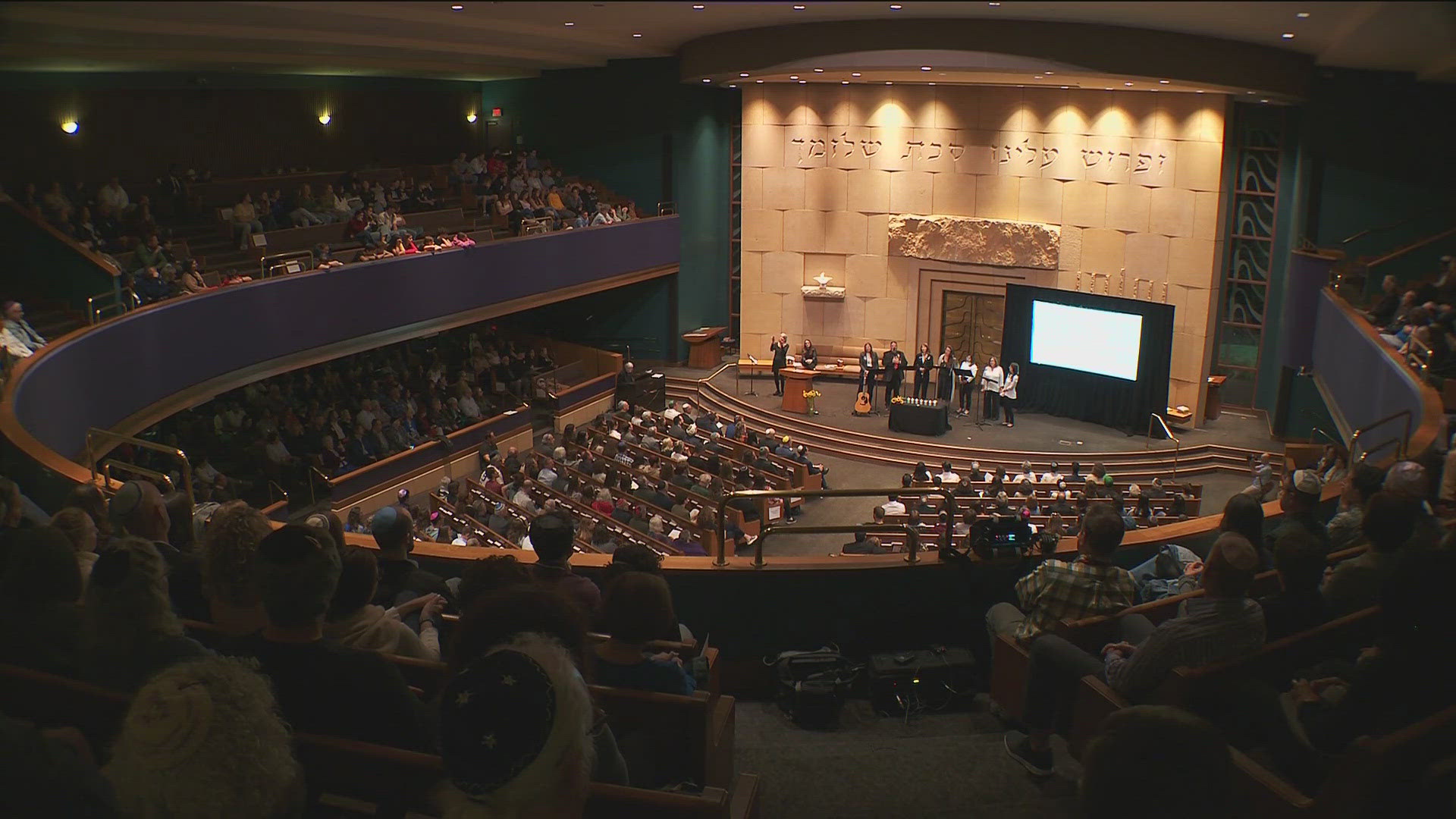MINNETONKA, Minn. — More than 1,000 people packed the sanctuary at Adath Jeshurun Congregation on Monday evening to commemorate one year since the Oct. 7 Hamas terrorist attack on Israel, which plunged the region into war.
The event, which lasted more than an hour, was organized with the help of various Jewish organizations across the Twin Cities and included rabbis from several congregations.
Rabbi Aaron Weininger of Adath provided the opening comments.
"My heart is here, and my heart is with the 101 remaining hostages, their families, and the protestors who insist they must come home now. No matter where and how our hearts are shattered, we turn to reflection and prayer to carry us," Weininger said. "Rippling out for our siblings in Israel, for the dignity of Palestinians, and into our world for peace."
Occurring in the middle of the Jewish High Holy Days between Rosh Hashanah and Yom Kippur, the service took on a somber tone, including reading of the traditional Mourner's Kaddish and a brief video depicting some of the events of last Oct. 7 at the Nova Musical Festival.
Lauren Zabezhinsky, who stood in a long line Monday evening to attend the event, said she came to seek comfort at a time of grief.
"I'm here with my community as we mourn one of the worst days in Israel's history," she said. "Our community is very, very tight-knit."
The Oct. 7 commemoration also offered a space for comfort amid a rising tide of anti-Semitism, both here and across the country.
According to an Anti-Defamation League report issued this week, reports of anti-Semitic incidents in the U.S. have tripled over the past year, reaching an all-time high.
"Statistics that we bear out in our own experience. There is more anti-Semitism in this country," said Steve Hunegs, the executive director of the Jewish Community Relations Council of Minnesota and the Dakotas. "And where will it lead?"
The JCRC was among the many organizations involved in planning Monday's event.
"It's one year. In Jewish tradition, the yahrzeit, we come together to remember the victims, to acknowledge the suffering," Hunegs said. "At the same time, hopefully in some ways, cast about for a better future, too."
Meanwhile, in the Middle East, conflict between Israel and Iran — and its proxies — continues to escalate.
Rabbi Adam Stock Spilker, who leads Mt. Zion Temple in St. Paul, said he has not given up on the prospect of peace in the region someday.
"All of the people who've died since October 7, our hearts are large enough that we can feel all the pain," Rabbi Spilker said. "It's very easy to think and be dismayed and hopeless with what's going on... but it is possible that it can can happen. I think it's further out, and we can't be pollyannish about it, but I do think it's a realistic possibility because people want to live, and not die."

